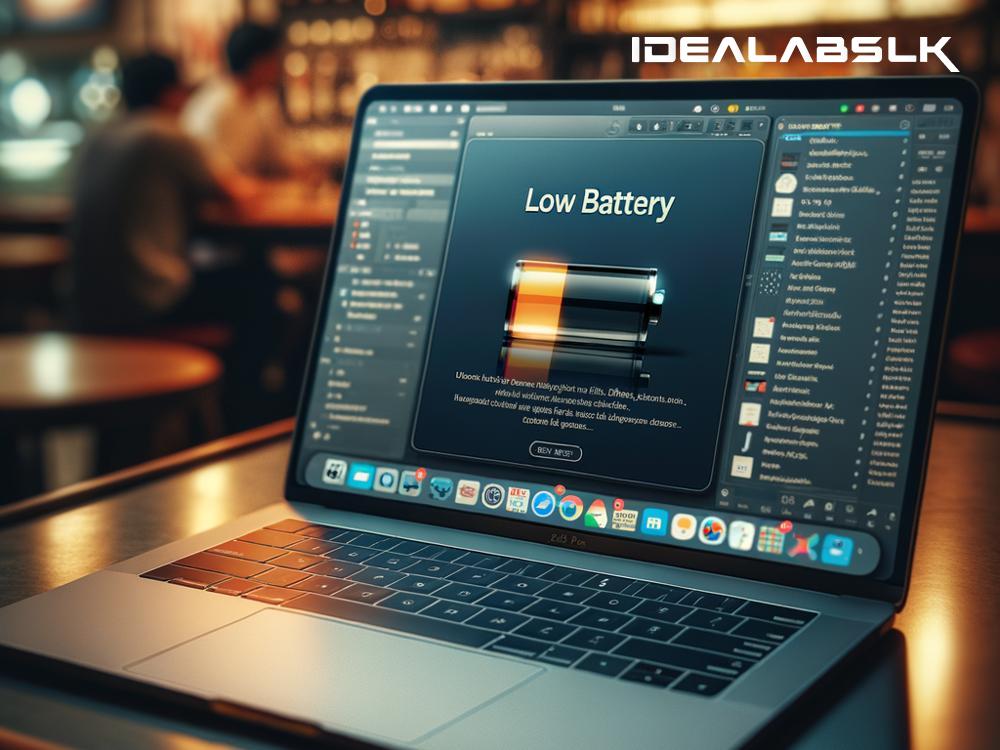How to Resolve 'Battery Drains Too Fast' on Laptops
Have you ever found yourself in the middle of an important task on your laptop, only to have it suddenly warn you that the battery is about to die? You're not alone. Many of us using laptops frequently encounter the issue of the battery draining too fast, which can be frustrating and disruptive. Fortunately, there are several simple steps you can take to alleviate this problem and get the most out of your laptop's battery life.
Understand Your Battery
Firstly, it’s good to understand that like any other battery, your laptop's battery has a lifespan. It's measured in charge cycles, implying that after a certain number of cycles, the battery's capacity to hold a charge reduces. Knowing this helps set realistic expectations about your battery's performance over time.
Check Your Battery’s Health
Your first step should be to check the health of your battery. Many laptops come with built-in diagnostics to help you understand whether your battery is in good shape or needs replacement. For Windows laptops, you can use the Battery Report feature by typing powercfg /batteryreport into the Command Prompt. For MacBooks, hold the Option key and click the Apple menu, then select System Information and look under Power to find the battery health status.
Adjust Power Settings
Both Windows and macOS offer various power settings that can help extend your battery life. In Windows, go to Settings > System > Power & Sleep and explore the available power plans. Selecting a power saver plan can significantly reduce battery consumption. Similarly, Mac users can go to System Preferences > Energy Saver and adjust settings like screen brightness and sleep mode.
Dim Your Screen
Screen brightness is one of the biggest drains on your laptop’s battery. By dimming your screen to the lowest level you're comfortable with, you can save a lot of power. This simple adjustment can be made through the display settings on your laptop or sometimes via function keys on the keyboard.
Close Unnecessary Apps and Tabs
Many of us are guilty of keeping multiple applications and browser tabs open simultaneously, even when they're not in use. These consume considerable processing power and, by extension, battery life. Make it a habit to close unnecessary apps and tabs. Also, consider using task manager or activity monitor to identify and terminate background processes that drain your battery.
Choose Simplicity
High-performance settings are great when you're gaming or using heavy software, but they're battery killers. When on battery power, opt for simpler, less demanding tasks and save the heavy lifting for when you're plugged in. This includes avoiding intense graphic applications and minimizing the usage of external devices like USB drives, as they can also draw power from your laptop.
Keep Your Laptop Cool
Batteries discharge faster when they're hot. Ensure your laptop’s cooling system is not blocked, and try to use it in well-ventilated areas. Overheating not only drains the battery faster but also reduces its overall lifespan.
Update Your Software
Outdated software can cause your laptop to run inefficiently, consuming more power. Ensure your operating system and all applications are up to date. Developers often include optimizations in updates that can help your laptop run more efficiently and conserve battery power.
Consider Battery Replacement
If, after trying all these tips, your laptop's battery still drains too fast, it might be time to consider a replacement, especially if the battery is old or the laptop indicates it's in poor health. Check with your laptop manufacturer for genuine battery replacements.
In Conclusion
While battery technology has advanced, it's still one of the limiting factors in how we use our laptops. By following these steps, you can optimize your laptop's battery life and reduce the frequency of those inconvenient low battery moments. Remember, taking care of your battery not only means it lasts longer on a daily basis but also extends its overall lifespan, saving you money and inconvenience in the long run. Happy computing!

